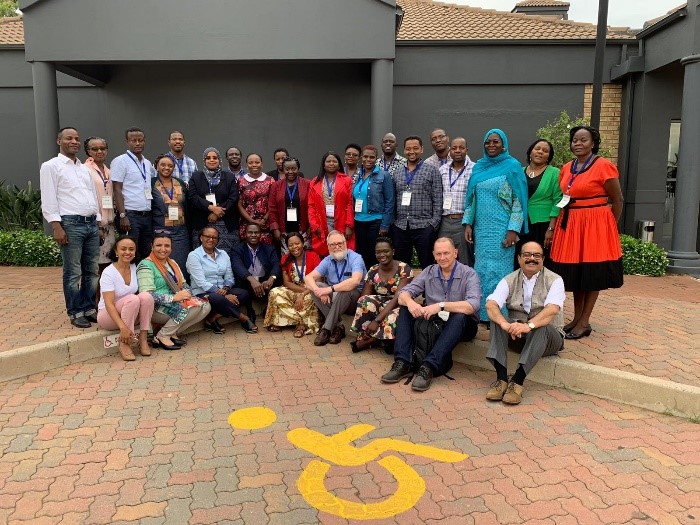Importance of MPDSR
Maternal and Perinatal Death Surveillance and Response (MPDSR) is a critical approach for improving quality of care for maternal and neonatal health. MPDSR is also instrumental to inform advocacy, policy, planning, service delivery and accountability towards ending preventable maternal and neonatal mortality. The practice of MPDSR facilitates targeted implementation of evidence based interventions to address the underlying causes of maternal death. It, therefore, becomes an important strategy for attaining:
- SDG 3.1 by 2030, reduce the global maternal mortality ratio to less than 70 per 100,000 live births
- SDG 3.2 by 2030, end preventable deaths of newborns and children under 5 years of age, with all countries aiming to reduce neonatal mortality to at least as low as 12 per 1,000 live births and under-5 mortality to at least as low as 25 per 1,000 live births
- SDG 3.8 by 2030 Achieve universal health coverage, including financial risk protection, access to quality essential health-care services, and access to safe, effective, quality, and affordable essential medicines and vaccines for all

Regional joint workshop
WHO, UNFPA and UNICEF in collaboration with other partners have been supporting countries strengthen the MPDSR in Africa. A lot has been achieved in a relatively brief time. This joint workshop is the second joint workshop to build national capacity on MPDSR.
WHO,UNFPA, UNICEF and partners co-convened a regional meeting on MPDSR in Johannesburg South Africa from 19 to 23 November 2018. Representatives from WHO, UNICEF, UNFPA, Johnson and Johnson spoke at the occasion and confirmed their continued support to maternal and newborn survival efforts.

The five-day workshop brought together 101 participants made up of delegates from thirty-one countries. The workshop was planned in two phases – first two days were allocated to technical data analysis and report writing workshop for 5 countries using tools such MaMMAS, PPIP V3, DHIS. While 2nd phase was for three days focusing broadly on knowledge and experience sharing on MPDSR.
Country group work sessions allowed participants to identify challenges and opportunities for prioritizing national actions towards ending preventable maternal and neonatal mortality. Some major outputs of the workshop were: data collection and analysis on existing situation of MPDSR in the countries, orientation of country teams for strengthened integration of perinatal element in the MDSR, accurate certification of cause of death, coding of underlying causes of death and to strengthen response to MPDR recommendations; draft operational plans to strengthen the MPDSR and revitalization of H6 ESA forum.
Key feedback from the participants included appreciation of this opportunity for learning and exchange of ideas; the need for onsite support for MPDSR data management, and continued technical assistance from partners to generate and sustain momentum.
Learn more about MPDSR here.
Check these resources for more information about the meeting:
